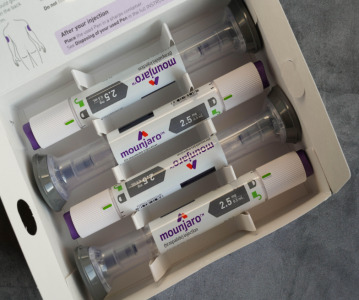Orphan Drug Designation granted to nintedanib for treatment of systemic sclerosis

Designation also includes the associated interstitial lung disease.
Boehringer Ingelheim has announced that the European Commission (EC) and FDA have granted Orphan Drug Designation to nintedanib for the treatment of systemic sclerosis (SSc, also known as scleroderma), including the associated interstitial lung disease (SSc-ILD).
SENSCIS, the largest trial to date in this disease area, is evaluating nintedanib to understand the disease process and potential benefit of the compound to treat SSc-ILD.
Systemic sclerosis, commonly referred to as 'scleroderma' is a disfiguring, disabling and potentially fatal rare disease that can cause scarring of the skin, lungs (SSc-ILD) and other organs. Worldwide, an estimated two million people have systemic sclerosis and up to 90% may develop some degree of lung scarring. In the US, it is estimated that SSc-ILD affects up to 86,000 people. SSc-ILD indicates a poor prognosis and accounts for 35% of all disease-related deaths.
"To have nintedanib receive Orphan Drug Designation is an exciting step forward for people living with scleroderma and associated interstitial lung disease, as well as their families," said Robert Riggs, CEO, Scleroderma Foundation.
"This designation represents important progress towards addressing an unmet need and bringing a potential new treatment to those with this rare and devastating disease," said Luke Evnin, chairman, Scleroderma Research Foundation.
"The FDA's and European Commission's Orphan Drug Designations for nintedanib are encouraging milestones in our SSc-ILD development program - and underscore our commitment to patients living with rare fibrotic lung diseases," said Martina Flammer, vice president, Clinical Development & Medical Affairs Specialty Care, Boehringer Ingelheim Pharmaceuticals, Inc. "Building on our positive real-world clinical experience in idiopathic pulmonary fibrosis (IPF), exploring nintedanib's potential as part of the SENSCIS study may revolutionize the way we approach this debilitating disease with unsatisfactory treatment options."
Related News
-
News The next 15 drugs up for negotiation with Medicare include several blockbusters
By now, everyone is quite familiar with the drug price negotiations taking place between drug companies and the Centres for Medicare & Medicaid Services (CMS) in the USA as part of measures being taken to reduce the cost of drugs for patients, to make ... -
News PSCI Welcomes Delpharm, Samsung Biologics, and Suven as First Supplier Partners
The pharmaceutical industry continues to evolve with an increasing focus on responsible sourcing, sustainability, and collaboration across the supply chain. Under a new model to recognise suppliers within the pharmaceutical and healthcare industry that... -
News Drug prices agreed upon as part of the US Inflation Reduction Act
The Inflation Reduction Act brought into constitution by the Biden administation in 2022, which proposed a drug price negotiation between the government and pharmaceutical companies, has reached it's first agreement. -
News Eisai Alzheimer’s drug authorised in UK but still faces obstacles
In partnership with BioArctic AB, pharmaceutical company Eisai has been granted Marketing Authorisation by the Medicines and Healthcare products Regulatory Agency (MHRA) for its Alzheimer’s disease drug product Leqembi. -
News Eli Lilly's weight loss drugs removed from the FDA's shortage list
The US FDA have recently updated their drug shortage list. The recently released list shows that all dosage forms of Eli Lilly's weight-loss drug Zepbound and their diabetes drug Mounjaro are now available. -
News Global advancements in the diagnosis and treatment of rare diseases: Rare Disease Day 2024
Rare Diseases Day is celebrated on the 29th February 2024 and represents the plight of rare disease patients to gain diagnosis and access to suitable treatment. -
News Pharmaceutical industry supports COP28 health stance in joint statement
As COP28 takes place over this week in Dubai, UAE, several bodies in the pharmaceutical and health industries have come together to announce support of key movements in sustainability in the sector, and to recognise sustainability as a health issue.&nb... -
News Biden backs Cold-War measures to shore-up medical supply chains
In a recent strategy to combat rising inflation and the cost of living crisis, President Joe Biden has invoked a Cold War-era act to increase investment in a selection of medicines and supplies.
Recently Visited
Position your company at the heart of the global Pharma industry with a CPHI Online membership
-
Your products and solutions visible to thousands of visitors within the largest Pharma marketplace
-
Generate high-quality, engaged leads for your business, all year round
-
Promote your business as the industry’s thought-leader by hosting your reports, brochures and videos within your profile
-
Your company’s profile boosted at all participating CPHI events
-
An easy-to-use platform with a detailed dashboard showing your leads and performance



.png)



